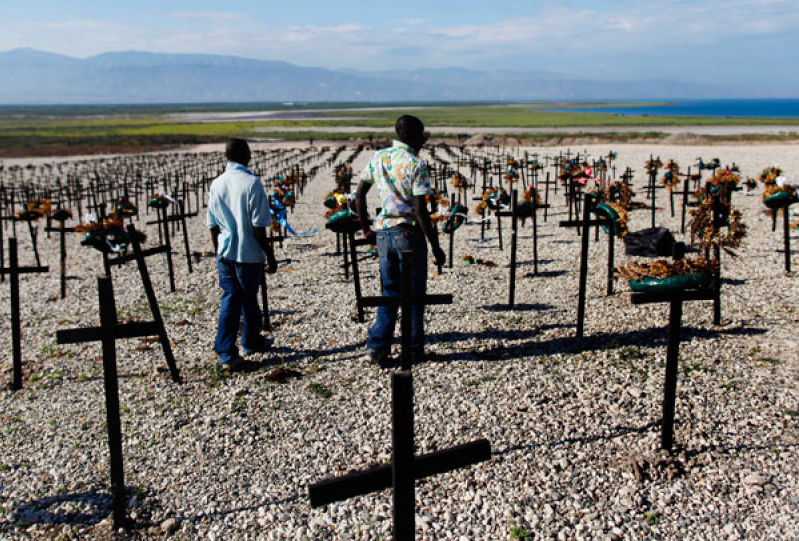
Haiti's death toll from last year's earthquake may not be as high as the government reported, a new report suggests.
According to The Associated Press, the total number of people who died after a powerful 7.0-magnitude quake shook the Caribbean country, is not 316,000 but between 46,000 and 85,000.
The new figure comes from a report commissioned by the U.S. government and prepared for the U.S. Agency for International Development. It has not yet been released, as there are still inconsistencies, as reported by AP.
Haiti drew the attention and compassion of the world when the already destitute country was rocked by the earthquake on Jan. 12, 2010. World Vision, one of the most well-known international humanitarian organizations, has spent $160 million to date providing assistance to families there.
Laura Blank, a spokesman for World Vision, noted that the Christian organization does not conduct its own assessment of death counts in disasters but rather relies on official government figures.
Upon hearing news about a possible much smaller death toll and a lower displacement figure, Blank said it still does not change the fact that the quake in Haiti "caused massive loss of life, injuries and humanitarian needs in a nation already struggling with extreme poverty."
In fact, lower figures are reason to actually celebrate.
"If the scope of destruction and death is shown not to be as cataclysmic as initially believed, it is World Vision's hope that this news will encourage Haitians and the international community that rebuilding a new Haiti is within reach – and that we must redouble our efforts," she told The Christian Post.
Timothy T. Schwartz, who led the U.S. report for USAID, said Monday in a blog post that a lower estimate of deaths should come as no surprise.
When the earthquake hit, the Haitian government was adding tens of thousands at a time to the death count in a matter of weeks. But there were reported errors and no one had kept count of the bodies being buried. Yet the figure kept rising.
Though the media and NGOs questioned the government's figures, the inquiries later stopped and they relied on the government's estimates.
"[W]hile I am not impugning any motivations, almost everyone who had anything to do with any type of official agency or NGO seemed deliberately bent on skewing the numbers as high as they possibly could. And they did so with total disregard for the evidence," wrote Schwartz.
He noted that the Haitian government has to this day never provided precise lists and issued varying claims of the number of people killed.
On a personal note, Schwartz said he doesn't care how many people really got killed in the earthquake. He was just doing his job with some 20 university educated professionals.
"[P]ersonally, for me, in terms of the tragedy, less is better," he wrote. "And at about 60,000 dead, that’s still a huge tragedy."






